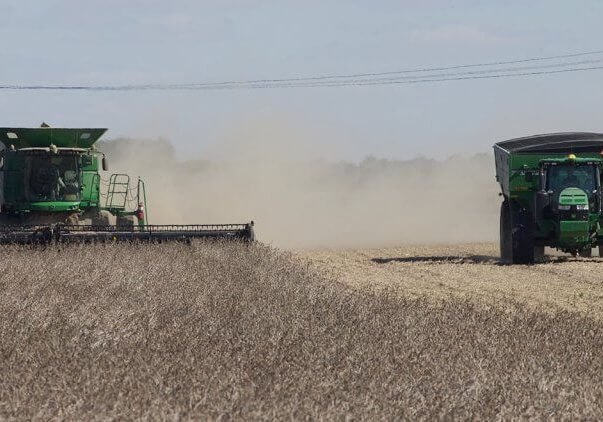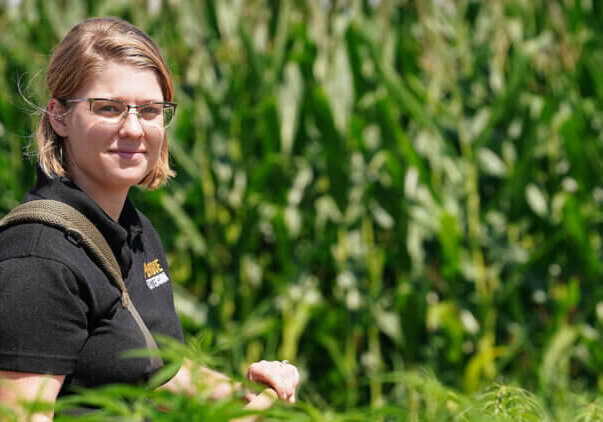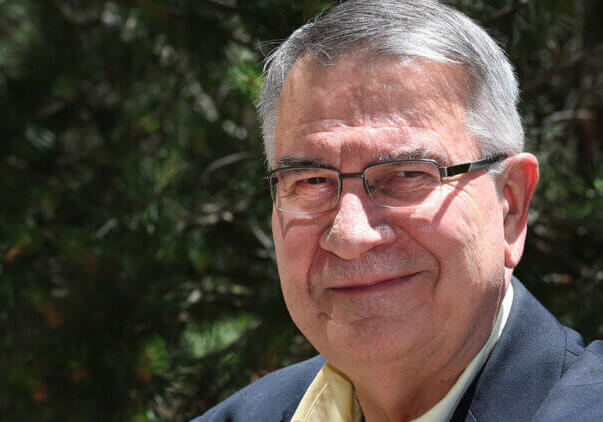"P
urdue Extension is critical to youth and adult learning in Daviess County. It’s a tremendous resource for our community and if Extension wasn’t here, no one else would do the things they do,” observed Tom Schaffer, former Perdue Farms Vice-President and current Daviess County Council member.
Community development is just one area where Purdue Extension provides research-based education in all 92 Indiana counties. As a signature program for Community Development, the Community Leadership Program strengthens individuals’ skills and confidence to assume leadership roles in their communities. Program graduates are serving on local boards, in local government positions and leading in a variety of volunteer efforts.
Cindy Barber, Purdue Extension Community Development educator, piloted this impactful program in Daviess County in 2015. Participants develop leadership skills and explore community centric topics including diversity, education, local government, economic development and health. Since its inception, educators are adapting the program in other counties and expanding it as a statewide effort.
“We took the 44-hour leadership curriculum and made it consistent but also nimble so each county can personalize it. Our niche is leadership development in rural communities, a common need that we have found,” said Barber.
Grain Processing Corporation (GPC), an agribusiness in Washington, Ind., was excited to see a leadership program come to their county and have since had 13 employees complete the program.
“The key piece for me and GPC is how the Extension leadership program develops skills such as leadership, personality profiles, communications and business relationships that we may not have had time to develop yet in our training,” said Lisa Klopfenstein, human resources manager at GPC. “It also serves a bigger purpose for us by helping employees who have moved into town find a community tie faster and stay here longer. It develops friendships that give people a reason to stay and gives them a place to plug into the community and give back.”
Perdue Farms has had similar success with the Purdue Extension leadership program with 11 total participants in the past five years. These employees not only grew in their communication and leadership skills, but most have now succeeded through promotions at Perdue.
“We are developing the leaders of tomorrow and this program is effective in doing just that. Folks that are younger in their training and career can benefit from the program and build confidence and self-esteem,” said Schaffer. “They also learn a lot about local government and this understanding is very critical. Maybe they will be confident enough to step up into a government role in the future.”
Sara Norfolk, human resources manager at Perdue Farms, has witnessed tremendous changes through many of the program graduates as they bring new ideas and perspectives to work and their community.
“Simply put, Purdue Extension is a connector of resources.”
Purdue Extension: Championing Mental Health on the Farm
Farming is a stressful occupation. Farmers own and operate private small businesses that rely on unpredictable markets influenced by government trade policies, unreliable and extreme weather conditions and ever-changing input costs. Since 2013, net farm income has declined by 50% nationally and, like other industries, the farmers have been burdened by the stress of the past year. Add in traditional negative stigmas associated with seeking help and lack of health insurance or mental health resources, farmers and other agriculture workers need more support and education than ever before.
Read Full Story >>>Purdue’s hemp specialist observes birth of a Hoosier industry
The hemp plant often thought to be native to North America, originated in the Tibetan Plateau, the world’s largest and highest plateau located in southwestern China. The multi-use plant predominantly harvested for its oil and fiber is gaining popularity with Hoosier growers as regulations change and the hemp byproduct industry grows.
Read Full Story >>>Retiring professor reflects on decades of opportunities, changes and constants
As retiring professor of agricultural economics Chris Hurt reflects on his 40-year career at Purdue, he talked about the people for whom he has worked through Extension and as a professor.
“Growing up on the farm, my neighbors and our community, they were wonderful people. I think of the people I have worked for in my job to be just like those neighbors—strong family people, hardworking and appreciative people. To think that I could bring the information to them to make better decisions, that’s been my contribution to society.”
Read Full Story >>>Purdue Extension: Championing Mental Health on the Farm
Farming is a stressful occupation. Farmers own and operate private small businesses that rely on unpredictable markets influenced by government trade policies, unreliable and extreme weather conditions and ever-changing input costs. Since 2013, net farm income has declined by 50% nationally and, like other industries, the farmers have been burdened by the stress of the past year. Add in traditional negative stigmas associated with seeking help and lack of health insurance or mental health resources, farmers and other agriculture workers need more support and education than ever before.
Read Full Story >>>Purdue’s hemp specialist observes birth of a Hoosier industry
The hemp plant often thought to be native to North America, originated in the Tibetan Plateau, the world’s largest and highest plateau located in southwestern China. The multi-use plant predominantly harvested for its oil and fiber is gaining popularity with Hoosier growers as regulations change and the hemp byproduct industry grows.
Read Full Story >>>Retiring professor reflects on decades of opportunities, changes and constants
As retiring professor of agricultural economics Chris Hurt reflects on his 40-year career at Purdue, he talked about the people for whom he has worked through Extension and as a professor.
“Growing up on the farm, my neighbors and our community, they were wonderful people. I think of the people I have worked for in my job to be just like those neighbors—strong family people, hardworking and appreciative people. To think that I could bring the information to them to make better decisions, that’s been my contribution to society.”
Read Full Story >>>

